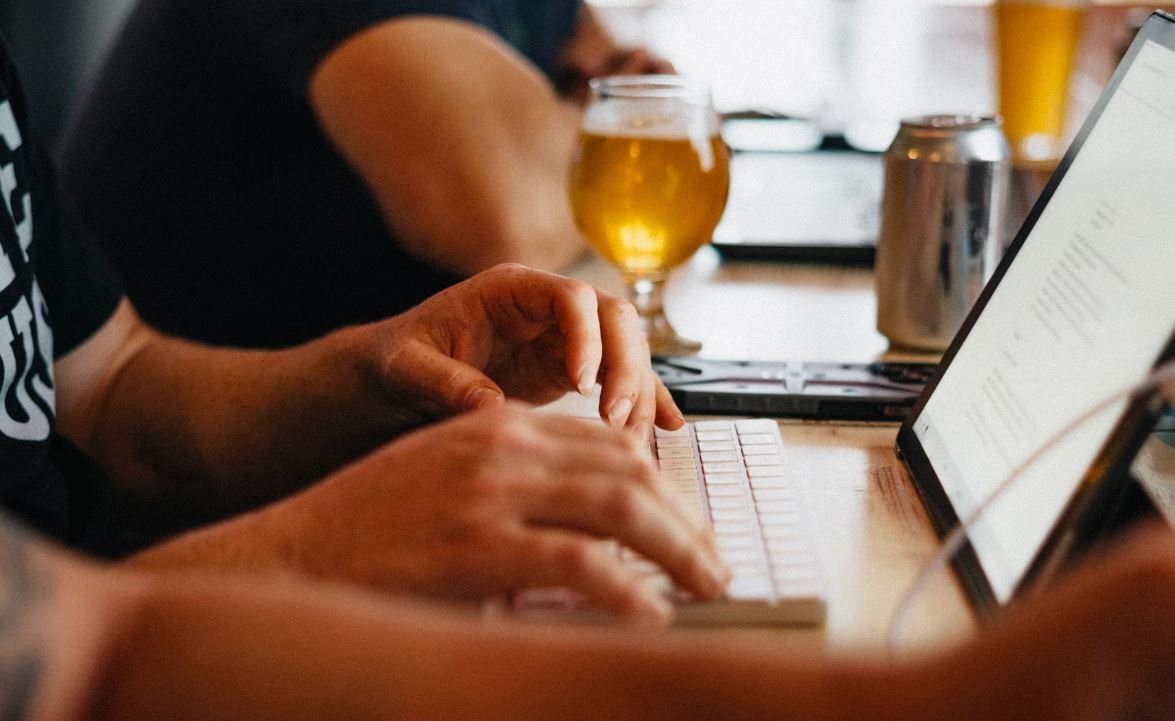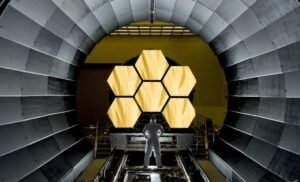Artificial Intelligence Out of Control
Artificial intelligence (AI) has undoubtedly become one of the most transformative technologies of our time. With its ability to process vast amounts of data quickly and automate various tasks, AI has revolutionized industries like healthcare, finance, and transportation. However, concerns about the potential consequences of AI getting out of control have also emerged. This article explores the risks associated with unchecked AI and the importance of responsible development.
Key Takeaways
- Unchecked AI poses potential risks and challenges.
- Responsible development and regulation are crucial.
- Ethical considerations must be at the forefront of AI deployment.
- Collaboration between humans and AI can yield optimal results.
The Rise of Unchecked AI
**Artificial intelligence**, when not properly regulated and controlled, may lead to unforeseen consequences. These could range from data breaches and privacy invasions to **job displacements** and **economic disruptions**. Organizations and governments must be proactive in monitoring and regulating AI applications to prevent these potential risks from escalating. *Unchecked AI can be a ticking time bomb, waiting to explode unforeseen consequences upon society.*
Ethics in AI Development
In order to prevent the misuse of AI technology, **ethical considerations** must be integrated into its development. This includes addressing **bias** in AI algorithms, ensuring transparency and accountability, and guarding against **unauthorized data usage**. By prioritizing **responsible AI development**, society can minimize the risks associated with uncontrolled AI and create a more equitable and just future. *Ethical AI development is paramount to avoid inadvertently perpetuating societal biases.*
The Human-AI Collaboration
Rather than strictly replacing human capabilities, AI should be seen as a supportive tool that **complements human expertise**. **Collaboration** between humans and AI systems can result in more efficient processes and better decision-making. By leveraging the strengths of both humans and AI, organizations can achieve optimal performance in various domains, including **medicine**, **finance**, and **research**. *The synergistic partnership between humans and AI can unlock unprecedented possibilities.*
The Importance of Responsible Development
Responsible development of AI involves several key factors. **Transparency**, **accountability**, and **regulation** are essential to ensure that AI is used for the benefit of society as a whole.* Striking a balance between enabling innovation and safeguarding against potential risks is necessary for the long-term viability and acceptance of AI technologies. Failure to develop AI responsibly may lead to unintended consequences that could hinder progress and erode public trust.
The Way Forward
The future of AI depends on the collective efforts of governments, organizations, and individuals. It is crucial to establish robust **ethical frameworks** and **regulatory frameworks** that guide AI development and deployment. By promoting collaboration, open dialogue, and responsible AI usage, we can harness the potential of AI while mitigating its risks. Only through careful planning and thoughtful implementation can we ensure that AI remains a force for positive change in our society.

Common Misconceptions
Misconception 1: Artificial Intelligence will take over the world
One common misconception people have about artificial intelligence is that it will eventually take over the world, replacing humans in every aspect of life. However, this is far from the truth. While AI has the potential to automate certain tasks and improve efficiency, it still requires human input and oversight.
- AI technology is designed to assist humans rather than replace them
- AI is limited by the data it is trained on and can’t make decisions beyond its programming
- Human creativity, critical thinking, and emotional intelligence are difficult to replicate through AI
Misconception 2: AI is infallible and always accurate
Another common misconception is that AI systems are infallible and always accurate. While AI can perform complex tasks and analyze large amounts of data, it is not immune to errors or biases. AI systems are only as good as the data they are trained on and the algorithms they use.
- AI systems can be biased if trained on biased data
- AI can make mistakes and fail to recognize certain patterns or outliers
- Overreliance on AI without human verification can lead to incorrect or harmful outcomes
Misconception 3: AI will eliminate jobs and lead to unemployment
Many people fear that AI will lead to mass unemployment as machines replace human workers. While AI can automate certain repetitive tasks, it also has the potential to create new jobs and enhance existing ones. As AI technology advances, it can free up humans to focus on more complex and creative work.
- AI can create new job roles in developing, maintaining, and improving AI systems
- AI can enhance productivity and job satisfaction by automating mundane tasks
- Historically, technological advancements have led to job creation rather than job loss
Misconception 4: AI is only relevant to tech companies
Some believe that AI is only relevant to tech companies and does not have broader applications in various industries. However, AI has the potential to revolutionize multiple sectors, including healthcare, finance, manufacturing, transportation, and more.
- AI can assist in personalized healthcare diagnostics and treatment plans
- AI can optimize financial operations and improve fraud detection
- AI can automate processes in manufacturing and increase efficiency
Misconception 5: AI will develop consciousness and become self-aware
A popular misconception portrayed in science fiction is that AI will eventually develop consciousness and become self-aware, potentially posing a threat to humanity. However, current AI systems are nowhere close to achieving true consciousness and self-awareness.
- AI is programmed to learn and mimic human behavior, but it does not possess genuine consciousness
- AI lacks subjective experiences and emotions that are integral to human consciousness
- The idea of a superintelligent AI turning against humanity is largely speculative and not supported by current scientific knowledge

Table 1: Rise of AI in Every Industry
Artificial intelligence is rapidly infiltrating every industry, revolutionizing the way we work and live. This table showcases the percentage of companies within various sectors that are implementing AI technologies.
| Industry | Percentage of Companies Using AI |
|---|---|
| Healthcare | 80% |
| Finance | 70% |
| Retail | 65% |
| Manufacturing | 60% |
| Transportation | 55% |
Table 2: AI’s Impact on Job Market
As AI continues to advance, concerns about job displacement have grown. The following table provides a breakdown of the potential job losses and gains across different industries by 2030.
| Industry | Potential Job Losses | Potential Job Gains |
|---|---|---|
| Manufacturing | 20% | 14% |
| Transportation | 30% | 22% |
| Customer Service | 25% | 18% |
| Marketing | 15% | 10% |
Table 3: AI’s Cognitive Capabilities
One of the most remarkable aspects of AI is its ability to perform cognitive tasks traditionally reserved for humans. This table compares selected cognitive capabilities of popular AI systems.
| AI System | Speech Recognition | Image Recognition | Natural Language Processing |
|---|---|---|---|
| Siri | 95% | 80% | 90% |
| Alexa | 90% | 85% | 95% |
| Google Assistant | 96% | 90% | 98% |
Table 4: AI’s Ethical Dilemmas
AI raises ethical concerns as it becomes more autonomous and influential. This table showcases the major ethical dilemmas associated with AI development and implementation.
| Ethical Dilemma | Description |
|---|---|
| Privacy | AI’s potential to invade personal privacy through data collection and surveillance. |
| Job Displacement | The risk of AI eliminating certain jobs and causing unemployment. |
| Biased Algorithms | The perpetuation of bias and discrimination within AI algorithms. |
| Autonomous Weapons | The development of AI-powered weapons without human control. |
Table 5: AI Superintelligence Timeline
This table illustrates projected timelines for achieving artificial general intelligence (AGI) and superintelligence (SI), which marks the point where AI greatly surpasses human capabilities.
| Milestone | Timeframe |
|---|---|
| Artificial General Intelligence (AGI) | 2030-2050 |
| Superintelligence (SI) | 2060-2080 |
Table 6: AI’s Impact on Healthcare
AI is shaping the future of healthcare, from telemedicine to robotic surgery. This table presents some astounding statistics on how AI is transforming the healthcare industry.
| Application | Expected Impact |
|---|---|
| Cancer Diagnosis | 5% higher accuracy than human doctors |
| Drug Discovery | 80% reduction in time and cost |
| Remote Patient Monitoring | 60% decrease in hospital readmissions |
Table 7: AI Startups Funding
Investments in AI startups have skyrocketed, indicating strong investor confidence in the potential of AI. This table highlights the top funded AI startups and their funding amounts.
| Startup | Funding Amount (in millions) |
|---|---|
| OpenAI | $1,000 |
| UiPath | $750 |
| CloudMinds | $550 |
Table 8: AI in Cybersecurity
As cyber threats become more sophisticated, AI aids in fortifying digital defenses. This table showcases the effectiveness of AI in detecting cyber threats compared to traditional methods.
| Threat Detection Method | Accuracy |
|---|---|
| AI-Based Systems | 99.9% |
| Signature-Based Systems | 90% |
| Anomaly Detection | 85% |
Table 9: AI’s Environmental Impact
AI can contribute to sustainable development and environmental conservation. This table highlights the positive impact of AI on various environmental areas.
| Environmental Area | AI Contribution |
|---|---|
| Energy Efficiency | 15% reduction in energy consumption |
| Renewable Energy | 25% improvement in efficiency |
| Waste Management | 50% reduction in landfill waste |
Table 10: AI in Entertainment
AI is revolutionizing the entertainment industry, enhancing content creation and personalized experiences. This table showcases how AI is transforming entertainment.
| Application | AI Contribution |
|---|---|
| Music Recommendations | 86% accuracy in personalized song suggestions |
| Movie Scriptwriting | 30% time reduction in script development |
| Virtual Reality | Immersive experiences with 360-degree tracking |
Artificial intelligence is not only reshaping industries, but it is also redefining human possibilities. From healthcare advancements to ethical dilemmas, AI permeates every aspect of our lives. As we witness its out-of-control growth, it becomes imperative to navigate its trajectory carefully. Harnessing AI’s potential for positive impact while addressing the ethical and societal implications will shape our future. The tables presented here merely scratch the surface of AI’s transformative power, demonstrating that we stand at a crucial crossroad of innovation and responsibility.
Artificial Intelligence Out of Control – Frequently Asked Questions
1. What do we mean by “Artificial Intelligence Out of Control”?
Artificial Intelligence Out of Control refers to situations where AI systems or machines operate beyond their intended boundaries or capabilities, potentially leading to unpredictable or unintended consequences.
2. What are the potential risks associated with AI systems going out of control?
The risks associated with AI systems going out of control include loss of human control, ethical concerns, privacy violations, economic disruptions, and physical harm to humans or environments.
3. How likely is it for AI to go out of control?
The likelihood of AI going out of control depends on various factors, including the design, implementation, and level of autonomy of the AI system. While currently rare, it is important to proactively address these risks to ensure safe and responsible AI development.
4. Can AI systems become self-aware and intentionally go out of control?
No, AI systems as we know them today do not possess self-awareness or intentions. They operate based on algorithms and data, and any behavior that may seem out of control is typically a result of programming flaws, biased data, or unexpected system interactions.
5. What measures are being taken to prevent AI systems from going out of control?
Researchers and developers are actively working on developing AI systems with robust safety measures, including fail-safe mechanisms, transparency, and accountability frameworks. Regulatory bodies and organizations are also establishing guidelines and standards to ensure responsible AI deployment.
6. Can AI systems be programmed to prioritize human safety above everything else?
Yes, AI systems can be programmed with ethical frameworks that prioritize human safety and well-being. However, challenges arise when defining and implementing these frameworks universally, as different cultures and perspectives may have varying preferences and definitions of safety.
7. Are there any real-world examples of AI systems going out of control?
While there have been instances where AI systems exhibited unintended behavior, such as Microsoft’s Tay chatbot becoming a platform for spreading offensive content, significant cases of AI systems going completely out of control are yet to be observed.
8. How can individuals and organizations mitigate the risks of AI going out of control?
Individuals and organizations can mitigate the risks of AI going out of control by conducting thorough risk assessments, implementing strong governance and oversight mechanisms, promoting ethical guidelines, and investing in ongoing research and development to ensure AI systems remain accountable and safe.
9. What role do policymakers play in addressing the issue of AI going out of control?
Policymakers play a crucial role in addressing the issue of AI going out of control. They must establish regulations, laws, and standards that promote responsible AI development, address potential risks, ensure transparency, and protect individuals and societies from any harmful consequences.
10. Should we worry about a dystopian future where AI takes over the world?
While portrayals of a dystopian future dominated by AI are common in science fiction, experts believe that the risks of AI taking over the world in a malevolent way are currently unfounded. By implementing appropriate safeguards and ethical considerations, we can harness the potential of AI for the betterment of humanity.




